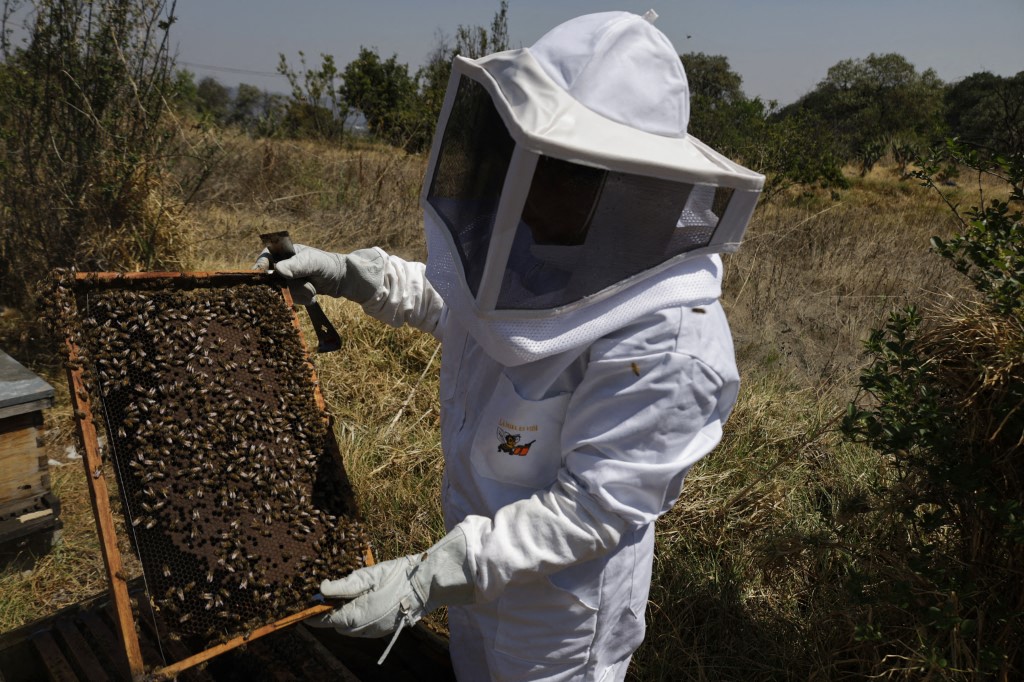Nature has always been generous to humankind, yet this abundance has encouraged people to take more than they give. Contrary to the popular saying, “If your beloved is a honey, don’t lick it all,” modern humans have consumed every last drop of Earth’s honey — and now, with alarming recklessness, are threatening the very insect responsible for its production. If this trajectory continues, the prophecy often attributed to Albert Einstein — that humanity would disappear just four years after the extinction of bees — may sadly come true sooner than we think.
The importance of bees goes far beyond honey. These insects are the planet’s most effective pollinators and are directly responsible for producing nearly 70% of the food we consume globally. In recognition of their vital role, the United Nations designated May 20th as World Bee Day. This year’s theme, “Bee engaged with youth,” emphasized how bees, inspired by nature, nourish us all. But like all UN awareness days, the purpose extends beyond celebration — it’s about raising global consciousness regarding bees’ crucial role in food security and ecosystem health. Losing bees would mean losing far more than just honey.
A Dynamic Beekeeping Sector
Lebanon’s beekeeping industry mirrors global trends, full of both opportunities and challenges. “There’s constant movement in and out of the sector,” says Hussein Qazmani, owner of a family-run honey business that markets Lebanese honey locally and internationally. While high production costs and limited space are hurdles, the emotional satisfaction of working with bees keeps numbers relatively stable — between 6,000 and 8,000 beekeepers nationwide, managing around 220,000 hives. Annual honey production fluctuates between 1,500 and 3,500 tons depending on rainfall and vegetation cover.
Mounting Challenges
Lebanese beekeepers face numerous challenges, not least of which are climate-related. Unseasonal weather — dry winters in January and February, and heavy rains in May — has disrupted bee habitats. “It turned winter into summer and summer into winter,” says beekeeper Nahida Raslan Saleh. One result was the disappearance of the honeydew secreted by oak aphids — a key ingredient in Lebanon’s mountain honey — slashing production last spring.
This year isn’t faring much better. Drought and low rainfall have reduced vegetation in coastal and inland areas alike. Some hope remains for honeydew recovery in areas like Mount Hermon, famously described by Fairouz as “the palace of dew.” As Qazmani notes, “Dew is just as important as rain.”
Toxic Pesticides: A Threat to Bees and Humans
The illegal import of highly toxic pesticides, unchecked by safety standards, is another major concern. Farmers often mix different chemicals or use cheap, environmentally harmful alternatives — a practice that not only kills bees but also harms consumers. “It increases disease and drives up healthcare costs,” warns Saleh. A lack of awareness and weak agricultural extension services have made things worse. However, with a new agriculture ministry and stricter oversight of fake honey producers, some beekeepers see progress.
Urban Sprawl and Wildfires complicate the Crisis
Urbanization and forest fires are also shrinking bee habitats, especially in Lebanon. These threats destroy thousands of square meters of vegetation, fruit trees, and wildflowers every year — reducing honey yields and rising production costs. A decline in bee populations leads to lower crop yields, which in turn further endangers bee populations — a vicious cycle that poses a serious threat to global food security.
Bees do more than pollinate 70% of our crops. They improve food quality and diversity and help cut farmers’ costs. According to the UN, artificial pollination is at least 10% more expensive than bees’ natural services. And we simply cannot match the efficiency or economic return of bees.
New Technologies, New Threats
Technological advances — especially in telecommunications — bring their own risks. The electromagnetic waves generated by digital infrastructure disorient bees, making it harder for them to find their hives. While headlines often paint a catastrophic picture, a report by the UN’s Food and Agriculture Organization (FAO) suggests that a global collapse of bee populations is not inevitable.
Hope Through Sustainable Solutions
While urban growth may be hard to control, solutions to pesticide abuse, forest fires, and climate protection are well within reach. “Beekeeping supports many of the UN’s Sustainable Development Goals for 2030,” says Saleh, pointing to its direct links to ending poverty (Goal 1), zero hunger (Goal 2), good health (Goal 3), gender equality (Goal 5), decent work and economic growth (Goal 8), and industry, innovation, and infrastructure (Goal 9). It also indirectly supports the remaining goals.
The road ahead is long, but the path is clear: protect the bees, and we protect ourselves.
Please post your comments on:
[email protected]
 Politics
Politics













